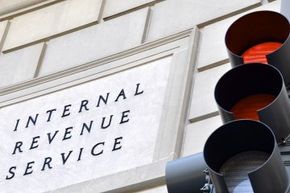 “If you can’t quite put your finger on copies of your tax returns, the IRS can help you out.marcnorman/iStockphoto/ThinkStock
“If you can’t quite put your finger on copies of your tax returns, the IRS can help you out.marcnorman/iStockphoto/ThinkStock
We all know it’s important to save your tax returns after you’ve filed them. There are any number of reasons you could need a copy of your return later on: a mortgage or refinancing application, loan applications, tax preparation for the next year. Worst-case scenario, you’d definitely want to have them handy if you happen to be audited by the IRS.
How long should you hang on to your returns — do you need to have stacks of papers going back decades? The IRS recommends that you keep them for three years. That’s the statute of limitations on audits, assuming you’ve actually filed returns, haven’t committed fraud and declared all of your income. (If you haven’t filed returns at all, the IRS can come after you at any time; if you’ve neglected to report 25 percent or more of your income, it’s six years.)
But nobody’s perfect. Sure, there are hyper-organized people out there who have their returns in meticulously maintained file cabinets. These folks could easily grab their returns if a mortgage broker requested them. But some of you might be reading this with a growing sense of dread — where exactly are those returns, anyway? Whether they’re crammed into a massive pile of papers in the back of a closet or possibly in a file box up in the attic, you’re not totally certain you could find them. Or maybe they’ve been lost in a move — or worse, destroyed in a fire, flood or other natural disaster. What do you do if you’ve misplaced your tax returns?
Don’t panic — it’s easy to get free return transcripts from the IRS. On the next page we’ll walk you through how to do it.
How to Get IRS Tax Return Transcripts
If you’re missing a return, the IRS offers them for free, for the current year and the previous three years. You can request a tax return transcript online, by phone or by mail. The easiest way is online, with the Order a Transcript tool. To create an account, you’ll need to verify your identity with the usual information: name, date of birth, Social Security number, filing status and mailing address (use the one on your most recently filed return). Then, you’ll be asked to answer a series of verification questions from a third party. These questions are generated by a credit reporting company, but your request isn’t reported to lenders and doesn’t affect your credit score.
You’ll have the choice of requesting a tax return transcript, tax account transcript or a record of account transcript. Return transcripts show all line items from your Form 1040, 1040A or 1040 EZ, along with all forms and schedules you filed. They don’t show any changes you might have made to the return after filing, but they will be sufficient for most mortgage and student loan applications. Tax account transcripts do include any post-filing changes, along with basic data like marital status, adjusted gross income and taxable income. A record of account transcript combines the two.
You can also get a verification of nonfiling letter if there’s a legitimate reason you didn’t file taxes in a certain year. And wage and income transcripts show the data from your W-2, 1099 and 1098 forms. If you order online, you’ll receive your transcript in five to 10 days. A tax account transcript ordered by mail could take up to 30 days.
If, for some reason, you’d like to have a full copy of a filed and processed return, you’ll have to fork over $57 and fill out Form 4506, Request for Copy of Tax Return. Those are available for the current year and the previous six years. If you live in a federal disaster area, this fee could be waived — there’s a "disaster relief" link on IRS.gov if you’re in this situation.
Check out the links on the next page for more IRS information.
Lots More Information
Author’s Note: How IRS Tax Return Transcripts Work
My tax returns aren’t necessarily meticulously organized, but I have actually located them for a couple of mortgage and refinancing applications. I do keep them for way too long, though, so I should probably get to work on thinning out my file pile.
Related Articles
- Understanding the Amended Tax Return Form
- How does bankruptcy affect a tax return?
- What are the advantages of e-filing your tax return?
- Where’s my tax refund?
- 10 Myths About IRS Audits
Sources
- Internal Revenue Service. "Get Transcript." (Nov. 14, 2014) http://www.irs.gov/Individuals/Get-Transcript
- Internal Revenue Service. "How to Get a Transcript or Copy of a Prior Year Tax Return." July 24, 2013. (Nov. 13, 2014) https://www.howstuffworks.com/personal-finance/personal-income-taxes/irs.htm
- Internal Revenue Service. "How Long Should I Keep Records?" (Nov. 14, 2014) http://www.irs.gov/Businesses/Small-Businesses-&-Self-Employed/How-long-should-I-keep-records
- Wood, Robert W. "How Long Can IRS Audit? It All Depends On You." Forbes, April 3, 2014. (Nov. 14, 2014) http://www.forbes.com/sites/robertwood/2014/04/03/how-long-can-irs-audit-it-all-depends-on-you/


